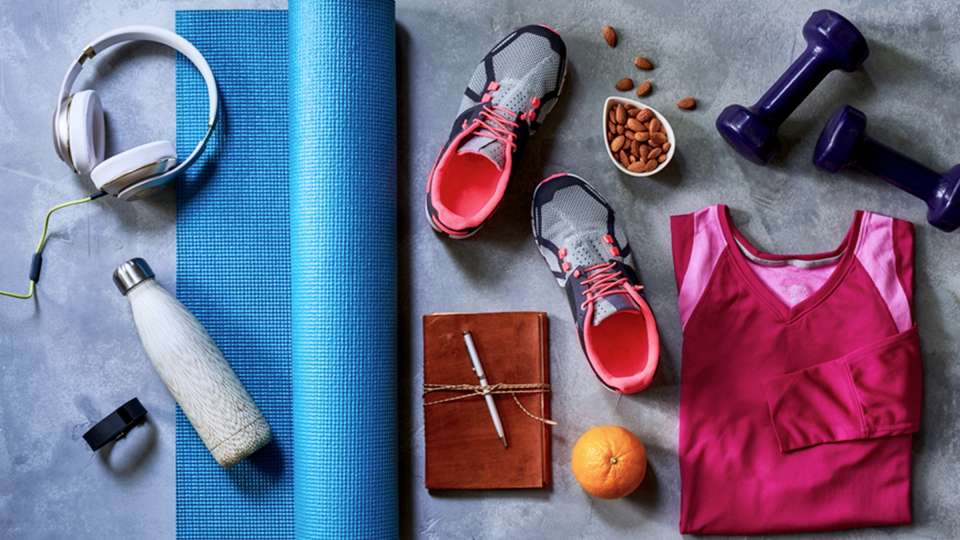
Whether you’re training for the Seattle Marathon or just getting some miles in for exercise, what you eat can make a big difference in how you feel on a run.
Too much and you’re bloated. Too little and you’re exhausted. And depending on what you eat, you may find yourself running for the bathroom instead of the finish line.
Thankfully, with the right mix of timing, nutrition and listening to your body, you can create a meal plan that’s just right for your running routine.
What and when to eat before your run
Eating before you run gives you more energy, helps with performance and can prevent midrun burnout.
“When you’re training for longer distances, practicing your runs with fuel in the belly can optimize performance,” says Karissa Culley, a registered dietitian with UW Medicine.
You want to eat a carb-focused meal a couple of hours before you run, she says. This can be a mix of simple carbs like white toast and white potatoes as well as complex carbs like whole grains and fruit. If you run first thing in the morning, try to eat something smaller, like a banana with peanut butter, 30 minutes before you run.
Culley recommends eating:
- Oatmeal with cinnamon and jam
- Granola with berries and yogurt
- Toast with peanut butter and banana
What and when to eat during your run
If you’re running for more than an hour, it’s time to start thinking about ways to fuel up during the run (meaning if you run less than an hour, you don’t need to hassle with eating en route).
Aim for 60 grams of carbohydrates per hour of running, made up of 80% glucose and 20% fructose, Culley says. Simple carbohydrates are best because they are digested quickly and give your body an immediate boost of energy. (They also pose less risk of stimulating your digestive tract — causing the dreaded runner’s poops or “the trots.”)
Culley recommends eating:
- Fruit snacks
- Sports gels, chews and drinks with carbs in them, like coconut water
- Pouches of pureed fruit, like applesauce and banana
What and when to eat after your run
Postrun, eat something with protein (to repair and rebuild your muscles) and carbs (to replenish the sugar used while exercising).
“In the first hour after a long run or race, eat something with complex carbs, which will help you recover,” Culley says.
Aim for 20 grams of protein and about 60 grams of carbs, including complex carbs, as you don’t usually need to worry about gut problems at this point, she says.
Culley recommends eating:
- Chocolate milk
- Smoothie with fruit and protein powder
- Complex starches like sweet potato, brown rice, or whole grain wraps with protein and grilled veggies
What to eat and drink to avoid runner’s trot, aka runner’s poops
There are several theories as to why running can cause diarrhea and constipation. One thought is the prolonged period of jostling of your gut reduces digestion and sends food through the gut (by massaging out the contents of your intestines — yikes). Another is that during a run your blood is shunted away from your gut, which disrupts digestion and causes discomfort.
Regardless of the reason it occurs, runner’s trot is, ahem, a crappy experience.
One way to deal is through gut training, or practicing running with small amounts of food in your gut so you learn to tolerate food while you run. You can start by drinking a sports drink with carbs in it to replicate the feeling of a full gut, then slowly start to try out foods on your run as you become more comfortable, Culley says.
“It might be uncomfortable for the first couple goes, and it’s something that needs to be done with consistency,” she says.
If you have a particularly sensitive stomach, it’s best to avoid caffeine, spicy foods and foods high in fiber before or during a run. A low-FODMAP diet can also help people manage irritable bowel syndrome (IBS) symptoms. And reducing stress can help curb any nervous poos brought on by the gut-brain axis.
Ultimately, you want to listen to your body. What’s most important is to find the food that fuels you and feels good.
“If you can tolerate Pop-Tarts but can’t tolerate a sports gel, eat the Pop-Tart. Even if it has fat or protein in it, if you can tolerate it, then eat it,” Culley says. “Do what does work for you and do that consistently.”

 Healthy ideas for your inbox
Healthy ideas for your inbox





